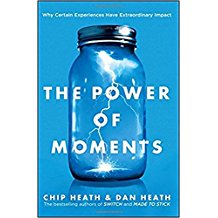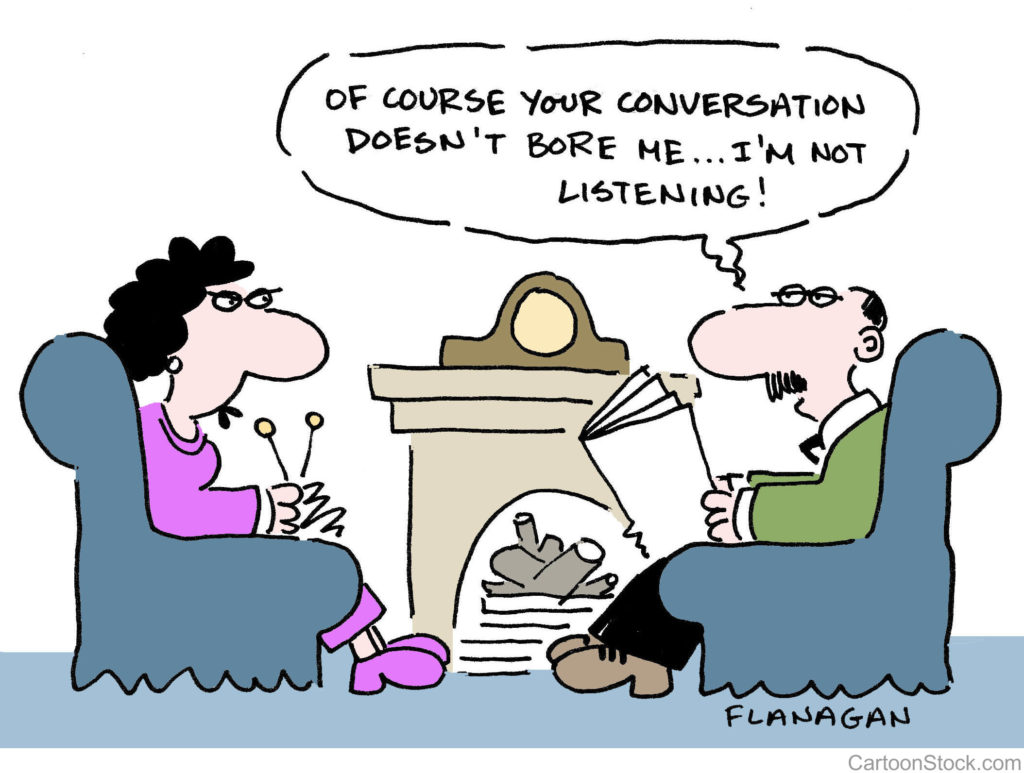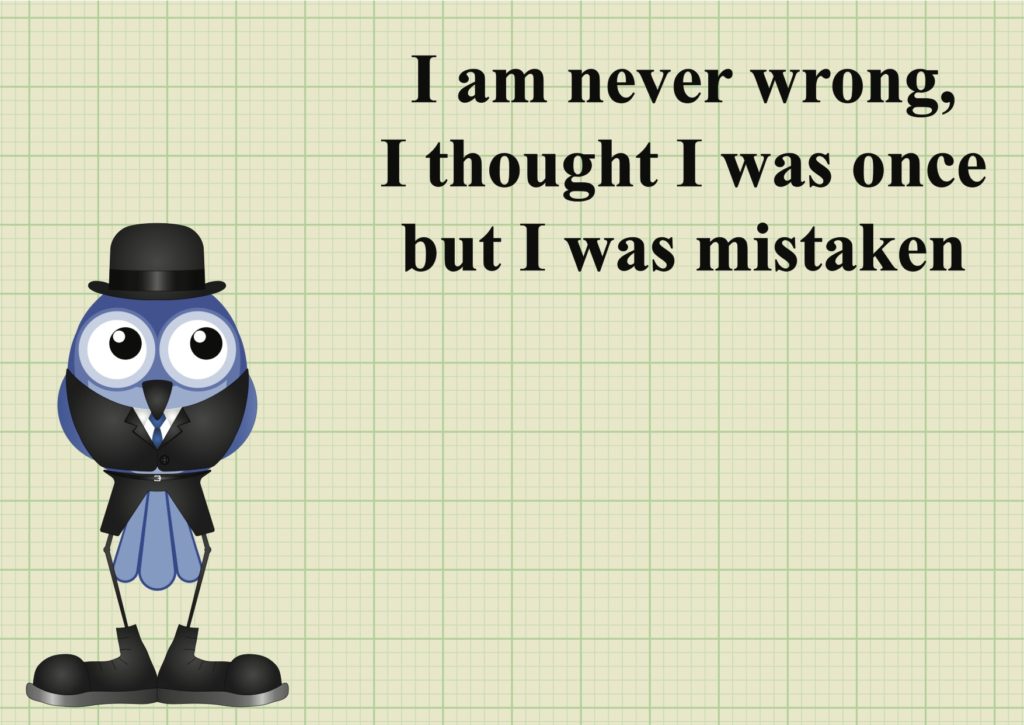
I am so grateful to God for my life, family, and friends. Looking back on the past 12 months several “best of…” come to mind. Here are a few.
Best novel and non-fiction books read
The Last Days of Night – Graham Moore
The Power of Moments – Chip and Dan Heath

 I read a lot; my goal is to read one book a week. Two weeks ago I posted a list of all the books I read in 2017. These were my two favorites.
I read a lot; my goal is to read one book a week. Two weeks ago I posted a list of all the books I read in 2017. These were my two favorites.
The Last Days of Night – Historical fiction, it tells the story of Thomas Edison and George Westinghouse’s epic battle regarding who invented the light bulb, and also includes the colorful Serbian emigrant, Nicola Tesla.
The Power of Moments – I like everything the Heath brothers write. They combine good research with accessible writing. This book unpacks the importance of pivotal moments and how to make them happen.
Best meal
Pot roast with family
 When I was a child we had pot roast every Sunday for lunch. Mom put it in the oven before we left for church and it was ready when we returned. So I have a strong emotional/sentimental connection to the dish. Several years ago I experimented with more than 12 different ways to season and cook a chuck roast and I have perfected the genre. So my favorite meal is to sponsor a carnivore night with family; we often stretch the event to two+ hours. Solomon was right when he said the best thing in life is to eat, drink, and spend time with those you love.
When I was a child we had pot roast every Sunday for lunch. Mom put it in the oven before we left for church and it was ready when we returned. So I have a strong emotional/sentimental connection to the dish. Several years ago I experimented with more than 12 different ways to season and cook a chuck roast and I have perfected the genre. So my favorite meal is to sponsor a carnivore night with family; we often stretch the event to two+ hours. Solomon was right when he said the best thing in life is to eat, drink, and spend time with those you love.
Best bottle of wine
2012 Hentley Farm, The Beast, Shiraz

In August I attended the grand tasting at TexSom—a premier conference for sommeliers. Penfold’s (a famous winery in Australia) was pouring samples of their best wine – Grange ($700 per bottle). Then I tasted The Beast from Hentley Farm (a relatively unknown winery from Australia) and liked it better than the Penfold’s. I ordered two bottles from a wine shop in upper state New York. Mary and I shared one bottle with our tablemates on the Queen Mary 2 and we’re saving the other bottle to celebrate a special event.
Best new friend
Buddy
 A couple in my church is training a therapy dog which they bring to worship services. It is a beautiful blonde Golden Retriever. One Sunday I asked where they got their dog and they gave me the name of a local breeder. I called; a new litter had just been born. In October I got a wonderful puppy and named him Buddy. He’s my therapy dog: he’s always happy to see me when I get home; he listens to me intently and doesn’t interrupt; he prefers hamburger over lobster. He gives me joy.
A couple in my church is training a therapy dog which they bring to worship services. It is a beautiful blonde Golden Retriever. One Sunday I asked where they got their dog and they gave me the name of a local breeder. I called; a new litter had just been born. In October I got a wonderful puppy and named him Buddy. He’s my therapy dog: he’s always happy to see me when I get home; he listens to me intently and doesn’t interrupt; he prefers hamburger over lobster. He gives me joy.
Best musical concert
University of North Texas A Cappella Choir
 My church, Stonebriar Community Church, sponsors Center Stage Concerts in which a limited audience (250 people) sit in close proximity to the musicians. In October we hosted the UNT choir, directed by Professor Allen Hightower. It was splendid. Many people have never heard the sounds we were fortunate to hear. Choral singing at its best.
My church, Stonebriar Community Church, sponsors Center Stage Concerts in which a limited audience (250 people) sit in close proximity to the musicians. In October we hosted the UNT choir, directed by Professor Allen Hightower. It was splendid. Many people have never heard the sounds we were fortunate to hear. Choral singing at its best.
 Best fun experience
Best fun experience
Chuck Swindoll directing an orchestra
Chuck Swindoll is the senior pastor at Stonebriar Community Church. I refer to him as the Pope of the evangelical world. He’s the greatest person I have ever known. At our Christmas Eve service our orchestra director surprised Chuck by handing him the baton to direct the 63 instrumentalists in Leroy Anderson’s Sleigh Ride. It brought the house down—unmitigated joy and happiness.
Best travel moment
Transatlantic crossing on the Queen Mary 2
 This is our third connective year to sail on this mid-December transatlantic cruise from London to New York City. I want to do this trip every year until I die. It is seven days at sea so there’s nothing to do but read, write, think, and attend lectures—but those are my favorite things to do so I’m in nirvana.
This is our third connective year to sail on this mid-December transatlantic cruise from London to New York City. I want to do this trip every year until I die. It is seven days at sea so there’s nothing to do but read, write, think, and attend lectures—but those are my favorite things to do so I’m in nirvana.
Best new project
Vineyard
 I’ve always wanted to have my own vineyard. The challenge has been where to plant it. This year my daughter and son-in-law bought a large lot on Cedar Creek Lake and started building a lake house. They have graciously allocated a 50×60 plot for a vineyard. We’ll grow Blanc du Bois, Black Spanish, and Tempranillo.
I’ve always wanted to have my own vineyard. The challenge has been where to plant it. This year my daughter and son-in-law bought a large lot on Cedar Creek Lake and started building a lake house. They have graciously allocated a 50×60 plot for a vineyard. We’ll grow Blanc du Bois, Black Spanish, and Tempranillo.
Best self-insight
For better and for worse—I’m frugal.
Even at 65 I’m still learning more about who I am and how nature and nurture nuanced me. This year I’ve discovered more about my frugality and how it has been a friend and a nuisance.
I grew up poor. Food was rationed, I wore hand-me-down clothes. So I was imprinted with the gift of frugality. Through the years it has prompted me to be careful with money, bargain hard, and save. That’s the good side. The downside is that I often do things to save money that I should pay to have done. I spent four hours changing out my car battery to save $50. My time is more valuable than that.
I hope 2018 will be a good year for all of us.
[reminder]Please share with your fellow readers, and me, some of your “Best of 2017” experiences.[/reminder]

 Here are three “rules of engagement” that will enhance your conversations. Talk about them with those whom you frequently converse with and incorporate them in your dialogues. They can become “verbal shorthand” to improve communication.
Here are three “rules of engagement” that will enhance your conversations. Talk about them with those whom you frequently converse with and incorporate them in your dialogues. They can become “verbal shorthand” to improve communication.


 I read a lot; my goal is to read one book a week. Two weeks ago I posted a list of all the books I read in 2017. These were my two favorites.
I read a lot; my goal is to read one book a week. Two weeks ago I posted a list of all the books I read in 2017. These were my two favorites. When I was a child we had pot roast every Sunday for lunch. Mom put it in the oven before we left for church and it was ready when we returned. So I have a strong emotional/sentimental connection to the dish. Several years ago I experimented with more than 12 different ways to season and cook a chuck roast and I have perfected the genre. So my favorite meal is to sponsor a carnivore night with family; we often stretch the event to two+ hours. Solomon was right when he said the best thing in life is to eat, drink, and spend time with those you love.
When I was a child we had pot roast every Sunday for lunch. Mom put it in the oven before we left for church and it was ready when we returned. So I have a strong emotional/sentimental connection to the dish. Several years ago I experimented with more than 12 different ways to season and cook a chuck roast and I have perfected the genre. So my favorite meal is to sponsor a carnivore night with family; we often stretch the event to two+ hours. Solomon was right when he said the best thing in life is to eat, drink, and spend time with those you love.
 A couple in my church is training a therapy dog which they bring to worship services. It is a beautiful blonde Golden Retriever. One Sunday I asked where they got their dog and they gave me the name of a local breeder. I called; a new litter had just been born. In October I got a wonderful puppy and named him Buddy. He’s my therapy dog: he’s always happy to see me when I get home; he listens to me intently and doesn’t interrupt; he prefers hamburger over lobster. He gives me joy.
A couple in my church is training a therapy dog which they bring to worship services. It is a beautiful blonde Golden Retriever. One Sunday I asked where they got their dog and they gave me the name of a local breeder. I called; a new litter had just been born. In October I got a wonderful puppy and named him Buddy. He’s my therapy dog: he’s always happy to see me when I get home; he listens to me intently and doesn’t interrupt; he prefers hamburger over lobster. He gives me joy. My church, Stonebriar Community Church, sponsors Center Stage Concerts in which a limited audience (250 people) sit in close proximity to the musicians. In October we hosted the UNT choir, directed by Professor Allen Hightower. It was splendid. Many people have never heard the sounds we were fortunate to hear. Choral singing at its best.
My church, Stonebriar Community Church, sponsors Center Stage Concerts in which a limited audience (250 people) sit in close proximity to the musicians. In October we hosted the UNT choir, directed by Professor Allen Hightower. It was splendid. Many people have never heard the sounds we were fortunate to hear. Choral singing at its best. Best fun experience
Best fun experience This is our third connective year to sail on this mid-December transatlantic cruise from London to New York City. I want to do this trip every year until I die. It is seven days at sea so there’s nothing to do but read, write, think, and attend lectures—but those are my favorite things to do so I’m in nirvana.
This is our third connective year to sail on this mid-December transatlantic cruise from London to New York City. I want to do this trip every year until I die. It is seven days at sea so there’s nothing to do but read, write, think, and attend lectures—but those are my favorite things to do so I’m in nirvana. I’ve always wanted to have my own vineyard. The challenge has been where to plant it. This year my daughter and son-in-law bought a large lot on Cedar Creek Lake and started building a lake house. They have graciously allocated a 50×60 plot for a vineyard. We’ll grow Blanc du Bois, Black Spanish, and Tempranillo.
I’ve always wanted to have my own vineyard. The challenge has been where to plant it. This year my daughter and son-in-law bought a large lot on Cedar Creek Lake and started building a lake house. They have graciously allocated a 50×60 plot for a vineyard. We’ll grow Blanc du Bois, Black Spanish, and Tempranillo.